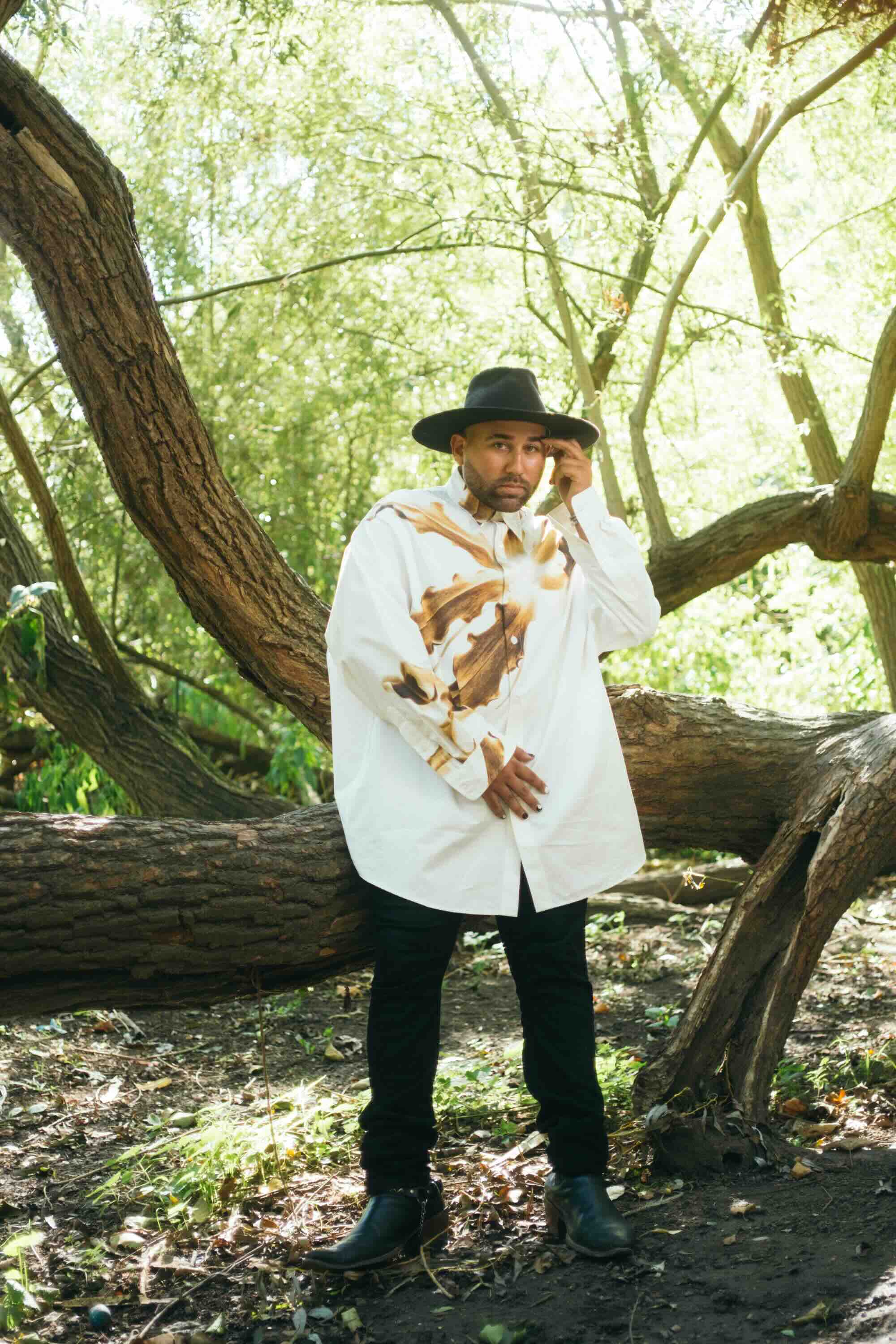RIYADH, SAUDI ARABIA, January 18, 2026 /EINPresswire.com/ — Last night (Saturday), the 6th edition of JOY AWARDS 2026 was held in Riyadh under the umbrella of Riyadh Season, organized by the General Entertainment Authority (GEA) in strategic partnership with MBC. The ceremony was attended by HE Turki Alalshikh, Chairman of the General Entertainment Authority, in an exceptional evening that brought together leading figures from cinema, drama, music, sports, and digital influence from across the Arab world and beyond, alongside a strong media presence and wide public engagement.
The ceremony was broadcast live on MBC1, MBC Masr, MBC Iraq, and MBC5, in addition to the streaming platform MBC Shahid. Viewers followed the stars’ arrivals and the lavender carpet moments, before the celebration moved into award presentations, honors, and live musical and performance segments that formed a fully integrated show throughout the evening.
The night began with the arrival of artists and celebrities in a vibrant celebratory atmosphere, accompanied by extensive media coverage and strong interaction around the stars’ first appearances. This was followed by the arrival of HE Turki Alalshikh, marking a key moment at the start of the evening ahead of the official program. The Saudi Royal Anthem was then performed, before the ceremony transitioned into a spectacular opening entertainment segment featuring global singer Katy Perry in a distinctive introductory performance that delivered a unique visual experience, combining orchestra elements, dancers, and special effects in a fully produced artistic sequence driven by dynamic lighting and striking stage presence, reflecting the scale of production and the precision behind the evening’s preparation.
The live show continued with a performance interlude by Pilobolus, presenting a shadow-dance segment that offered innovative, light-paced visuals and brought the audience’s focus back to the stage through a different interactive style, before awards began to roll out according to the program, amid clear anticipation from attendees and the media as results and honors were revealed.
As the awards competition commenced, Razane Jammal and Menna Shalaby presented the Favorite Series Actor award. Nominees included Abdulrahman Bin Nafea for Share’ Al A’sha, Abdulmohsen AlNemer for Al Marsa, Moatasem Al Nahar for Nafas, and Hesham Maged for Ashghal Shaqqa Geddan, before the result was announced and Abdulmohsen AlNemer was crowned the winner.
Tuba Büyüküstün and Halit Ergenç then presented the Favorite Levant Series award, which featured Aser, Bi Al Dam, Taht Sabe’ Ard, and Salma. The award went to Salma, with the cast and crew receiving the trophy on stage.
The ceremony then delivered a special honorary moment within the Lifetime Achievement Award, as HE Turki Alalshikh honored Egyptian painter and former Minister of Culture Farouk Hosny on stage, in recognition of his long-standing career and outstanding contributions. During the moment, HE noted the privilege of presenting the award to Farouk Hosny, who in turn expressed his gratitude to the Kingdom, its leadership, and to His Excellency for the honor he highly values.
In the Favorite Rising Star, Series category, Mai Omar and Mohamed Sami presented the award, with nominees including Taraf AlObidy for Ommi, Rosyll Al Ibrahem for Salma, Ali Beialy for Lam Shamsiyya, and Lama Abdulwahaab for Share’ Al A’sha, before Taraf AlObidy was announced as the winner.
The live performances then returned to center stage with a major musical segment by Angham, featuring Polish guitarist Marcin, delivered as a live on-stage spectacle that received strong audience interaction. The ceremony continued with Mohamed Henedi presenting the Favorite Gulf Series award, in which Al Marsa, Ommi, Share’ Al A’sha, and Sayf 99 competed. The award went to Share’ Al A’sha, with the show’s team receiving the trophy.
Results continued with the Favorite Series Actress award, presented by Bariş Arduç and Hande Erçel. The nominees included Alanoud Saud for Ommi, Elham Ali for Share’ Al A’sha, Amina Khalil for Lam Shamsiyya, and Karess Bashar for Taht Sabe’ Ard, before Karess Bashar was announced as the winner.
For the Favorite Egyptian Series award, Lee Byung-hun and Lee Jung-jae presented the category featuring Esh Esh, Ashghal Shaqqa Geddan, Aysha El Dor, and Lam Shamsiyya. The winner was Ashghal Shaqqa Geddan, with representatives of the production receiving the award.
The ceremony also featured a major honorary moment with the Entertainment Makers Diamond Award, as HE Turki Alalshikh honored Mr. Nasser bin Ghanim Al-Khelaifi, Chairman of beIN Media Group and Chairman of Qatar Sports Investments (QSI). Al-Khelaifi received the award in recognition of his influential role in shaping the global sports entertainment and media landscape. The tribute was met with strong audience acclaim, standing out as one of the evening’s most symbolic highlights and reflecting the prestige of this top-tier honorary award, which celebrates leaders who have made a lasting impact in the industry.
Immediately after, the ceremony transitioned into a special musical moment by Jude Kofie, who performed live on a grand piano in a segment that included short instrumental pieces, among them Radinak, adding a calm artistic layer to the flow of the evening ahead of the next awards.
In the sports categories, Mexican boxing star Canelo Álvarez and Egyptian actress Nelly Karim presented the Favorite Male Athlete award, featuring football nominees Salem Al Dawsari, Saleh Abualshamat, Nawaf AlAqidi, and Yassine Bounou. The award went to Yassine Bounou and was received on his behalf by the Ambassador of the Kingdom of Morocco to the Kingdom of Saudi Arabia, Dr. Mustafa Al Mansouri. The pair then presented the Favorite Female Athlete award, with nominees Dunya Aboutaleb (Taekwondo), Valerie Tarazi (Swimming), Layla AlQahtani (Football), and Haniya Minhas (Tennis). The award was won by Saudi athlete Layla AlQahtani.
In music, Syrian actress Nour Ali and Syrian actor Taim Hasan presented the Favorite Male Singer award. The nominees were Al Shami, Sultan Al Murshed, Ayed, and Fadel Chaker. The winner was Fadel Chaker, with the award received on his behalf by Ziad Hamza. Marwan Khoury then presented the Favorite New Artist award, featuring Hamza, Luna Karam, Mohamed Fadel Chaker, and Yazeed Fahad, and the award went to Mohamed Fadel Chaker.
The evening’s momentum continued with a standout joint performance by global star Robbie Williams and artist Ayed. Robbie Williams performed some of his best-known hits, including Feel, while Ayed performed Takhayal Law to strong crowd interaction, before the duo came together in a special duet of Angels, one of the most celebrated and highly engaging moments of the night.
Katy Perry then returned to present the Favorite Female Singer award, with nominees Assala, Angham, Bessan Ismail, and Nancy Ajram. The award went to Angham, adding another highlight to her presence in a night that blended live performance with recognition.
In the Favorite Song category, Amr Youssef and Hannah El Zahed presented the award featuring A’tather Wa Ageek by Ayed, Heseeny by TUL8TE, Doctor by Al Shami, and Sahak Ishoq by Fadel Chaker. The award went to Sahak Ishoq as the winning work. The trophy was received on behalf of Fadel Chaker by Mohamed Zaki Hasanein, who conveyed the artist’s wish for the award to remain with His Excellency Turki Alalshikh until it is personally received from him.
In the Influencers categories, Ahmad Al Qahtani (SHoNgxBoNg) and Maryam Naser presented the Favorite Male Influencer award, with nominees Abo Khalil (Ibrahim AlOmry), Osama Marwa, Aziz Bin Mohammed, and Mjrm Games (Rayan Al Ahmari). The award was won by Rayan Al Ahmari. The duo also presented the Favorite Female Influencer award, featuring Esraa Nabil, Ayatee, Rateel Alshehri, and Sherin Amara, with Rateel Alshehri taking the award.
The evening also featured a special honorary recognition, as the Saudi Saleh Al Areedh received the Entertainment Makers Honorary Award in a segment presented by Lama Abdulwahaab and Yaqoub Alfarhan, reflecting appreciation for his contributions and impact. The honorary awards continued with a tribute to Assala, with the award presented to her by Amina Khalil and Shah Rukh Khan in an exceptional moment that brought together Arab and international presence, and reflected deep appreciation for a career that has remained firmly rooted in the audience’s memory.
The ceremony then took a deeply emotional turn with the In Memoriam segment performed by Abeer Nehme, delivered in a heartfelt musical tribute honoring the memories of those who passed away from the artistic scene in 2025, celebrating the enduring human and artistic legacy that remains alive in the public conscience.
Following that, Alexander Ludwig and Sulafa Mimar presented the Favorite Film Director award, with nominees Sara Wafik for Restart, Abdulaziz AlShlahe for Hobal, Omar El Mohandes for Siko Siko, and Abdullah Majed for Alzarfa. The award went to Omar El Mohandes.
The ceremony then reached another key international highlight with the Personality of the Year award, presented by Baraa Alem and Mayan El Sayed and awarded to British star Millie Bobby Brown—known for her standout roles across several films and series. She took the stage to receive the award to enthusiastic applause, reflecting the global dimension of the event and the scale of international participation in the sixth edition of JOY AWARDS.
In the television directing category, Alfie Allen and Nour Al Ghandour presented the Favorite Series Director award. Nominees included Ahmet Katiksiz and Gül Sarıaltin, Cevdet Mercan and Serhan Şahin, Khaled Diab, and Rasha Shurbatji. The award went to Ahmet Katiksiz and Gül Sarıaltin for Share’ Al A’sha.
The honorary moments continued with the Lifetime Achievement Award presented to global star Forest Whitaker in a special segment presented by Carmen Bsaibes and Youssef El Sherif, one of the night’s major recognition highlights. The ceremony then moved into a joint musical segment featuring Il Divo and Liz Mitchell, adding to the show’s artistic richness before returning to major cinema awards.
For the Favorite Movie Actor award, Heather Graham and Bassem Youssef presented the category featuring Ahmed Malek for 6 Days, Bashar Alshatti for Monster of Hawalli, Maged El Kedwany for Feeha Eh Yaani, and Mohamed Shaif for Alzarfa. The award went to Maged El Kedwany.
The ceremony then honored Kuwaiti director Ahmed Al Dougahji, with the award presented by American actor Jeremy Piven, in the presence of Rotana CEO Salem Al Hindi and artist Mohamed Abdo on stage. The Favorite Movie Actress award followed, presented by Oscar Isaac and Huda El Mufti, with nominees Ayah Samaha for 6 Days, Donia Samir Ghanem for Rocky El Ghalaba, Shejoun for Wedding of Fire, and Hannah El Zahed for Restart. The award went to the Kuwaiti Shejoun, and was received on her behalf by producer Saud Al Mudhif.
In the final moments, Egyptian composer and singer Amr Mostafa was honored within the honorary awards, with the award presented by British singer Robbie Williams. The ceremony then announced the Favorite Movie winner among Alzarfa, Siko Siko, Wedding of Fire, and Hobal, with Siko Siko taking the award and the team stepping onto the stage to celebrate the win.
The night concluded with the Ya Sham artistic segment, which brought back widely loved themes and iconic works that resonated strongly with the audience. The hosts then bid farewell in a closing broadcast that reaffirmed JOY AWARDS as one of the region’s largest festivals for entertainment recognition, within Riyadh Season, bringing together live performances, global presence, and audience-driven results shaped through voting.
–
–
email us here
Legal Disclaimer:
EIN Presswire provides this news content “as is” without warranty of any kind. We do not accept any responsibility or liability
for the accuracy, content, images, videos, licenses, completeness, legality, or reliability of the information contained in this
article. If you have any complaints or copyright issues related to this article, kindly contact the author above.

![]()




